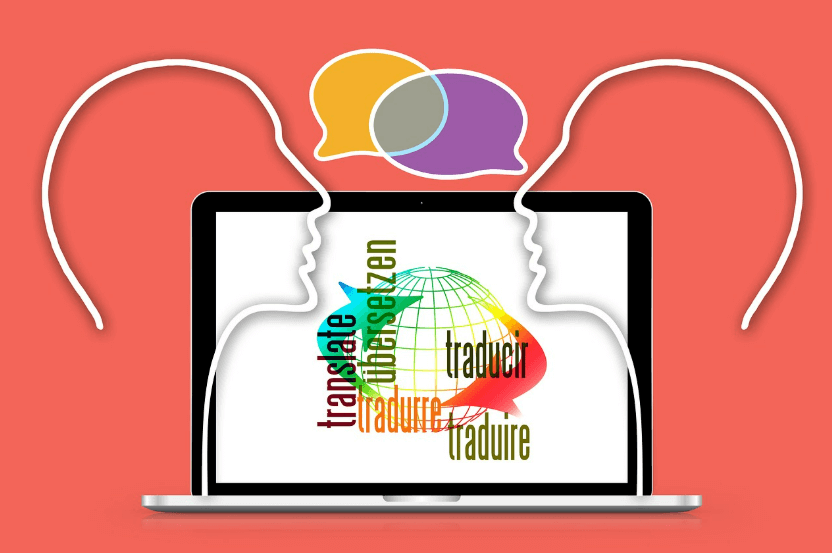Being able to speak multiple languages is a benefit in any industry, but in remote IT support, it is a matter of success or failure. Companies need staff who speak more than one language so that they can communicate with clients and diagnose technical problems without language barriers getting in the way.
And that's where the need is growing. With greater international expansion of businesses, firms seek IT professionals who, besides having adequate technical proficiency, are also good communicators to deal with foreign customers. Both problem-solving skills and language proficiency are becoming key requisites in order to get remote IT support jobs. If you're wondering how multilingual skills can shape your career in this field, read on to find out why they matter and how they can help you.
Why Multilingualism is a Game-Changer in Remote IT Support
As we pointed out at the beginning, having more than one language is always useful at work. Before, IT support was done mainly face-to-face, and language was never a problem. If a customer had a problem, they were usually able to find someone locally who spoke their language or struggle along with some knowledge of language to get by. But all that has changed. Businesses have facilities in many countries now, and customers expect help in their own language, and IT professionals are no longer down the hall from the people they're helping.
Think about this: if you were having a technical issue and could not properly explain it, how frustrating would that be? Now think about the person you are speaking to who understands you perfectly well, even in a language where you are more proficient. That is what companies want for their customers, and that is why multilingual IT professionals are highly in demand.
How Multilingual Professionals Make a Real Impact in Remote IT Support
Here's the way being multilingual really makes a difference in remote IT support:
-
People are more at ease when they can explain problems using their own language. IT issues are already stressful enough, and struggling to communicate makes them even harder. Customers who can communicate with ease find solutions sooner, and the whole process is significantly easier.
-
Less back-and-forth means quicker resolution of issues. Miscommunication in IT support makes a speedy fix into a slow, painful one. To communicate seamlessly is to have issues resolved the first time.
-
Companies require IT staff who can support global teams. It's not just about talking with customers—internal teams also must communicate across geographies. IT specialists who can bridge language gaps are a big asset.
-
Multilingual specialists are the standout individuals in the workforce. Companies appreciate how useful language skills are when it comes to IT support, so those who can assist them in catering to international clients are likely to be hired.
-
Good language skills can also mean good pay. Companies are willing to pay extra for professionals who can speak in several markets. If you can speak a second (or third) language, you're bringing value to the table.
Expanding Career Prospects Through Specialized IT Hiring Networks
The demand for multilingual computer professionals is on the rise as businesses seek foreign client-support specialists. While expertise in languages creates the opportunity, securing the appropriate remote opportunity is still challenging. Many businesses fail to advertise these opportunities publicly, and even job seekers often struggle to access employers who truly value their multilingual abilities. It is here that professional recruitment networks intervene, allowing expert professionals to get placed in the kind of work that matches their technical and language skills.
How IT Professionals Are Recruited by Hiring Networks
Most companies rely on external recruitment networks to find qualified IT professionals, especially for telecommuting positions. These networks serve as the bridge between companies and prospective employees by connecting them with jobs most appropriate for their abilities. For multilingual people, this is a major advantage because recruitment networks actively look for people who can assist customers in different areas. Instead of applying to thousands of positions and hoping for the best, IT professionals can connect with networks that understand their unique strengths and match them with companies actively seeking their skills.
A Smarter Way to Find Remote IT Support Roles
Managed Service Providers (MSPs) have customers in many nations, and their workforce therefore heavily includes multilingual IT experts. To cater for this demand, most organizations work with MSP staffing agencies that concentrate on filling jobs for IT specialists in remote setups. The MSP staffing agencies make the search easier by matching technical expertise with a company that has a need for technical skills alongside language skills. For a multilingual IT professional, a job through the best MSP staffing agency can be a direct path to a secure career with room to work for global clients.
The Skills That Set Multilingual IT Professionals Apart
There are many skills that make an IT support specialist proficient, but with language skills added to the equation, the benefits are compounded. It's not merely a matter of speaking more than one language—it's a matter of coupling technical knowledge with communication skills that enable seamless trouble-shooting on a global basis. Multilingual IT specialists offer a special kind of skillset that makes them extremely valuable as remote support agents.
Major Competencies That Augment Remote IT Support Ability
Good IT support is not an issue of technical problem-solving—it is about understanding the issue of the user, leading them step-by-step to solutions, and making them feel assisted. These skills empower multilingual IT support specialists to excel at remote work:
-
Active listening – Not only do they know what is communicated, but also the problem beneath it, especially when working with non-native speakers.
-
Patient and transparent communication – Slicing technical solutions so they are easy to understand for clients who possess different levels of tech savvy.
-
Cultural awareness – Recognizing and adapting to different communication styles to avoid miscommunication.
-
Technical problem fixing – Quick diagnosis and fixing of problems to minimize downtime for global clients.
-
Adaptability – Supporting different software, tools, and support processes depending on company and location.
The Multilingual IT Professionals' Competitive Advantage:
Beyond essential technical and communication skills multilingual IT professionals give businesses a clear competitive advantage in global operations. These extra abilities set them apart:
-
Solving problems under pressure – Sustaining time-critical IT problem-solving in different time zones without communication lags.
-
Multi-tasking – Handling multiple requests in different languages with short response times.
-
International team collaboration – Collaborating easily with global counterparts and clients.
-
Writing and documentation skills – Creating brief technical guides and reports that serve customers in different languages.
-
Customer service attitude – Delivering exceptional customer service by ensuring every interaction is professional, helpful, and efficient.
Remote Work Strategies for IT Support Professionals

Remote IT support isn't entirely technical. Good communication, planning, and the capacity to adapt to different issues make important contributions to the ease of support operations. For multilingual professionals, managing orders from clients in other time zones and languages adds another layer of complexity. However, with the right approach, remote IT support can be effective and rewarding. The following are three main strategies that guarantee multilingual IT professionals thrive in a remote setting.
1. Focus on Clear and Understandable Communication
Technical proficiency is important, but if explanations are not straightforward, the best solutions cannot help. Remote IT support professionals must ensure that what they say is understandable and simple, especially in situations where the clients do not speak the same language. With concise directions, simple to read language, and guaranteeing the directions are free from confusion, errors can be prevented and troubleshooting can be quickened. In addition, being attentive is of most concern—listening for what a customer genuinely wishes to inquire about can quite notably reduce troubleshooting time.
2. Managing Time Across Diverse Time Zones
As opposed to traditional office work, remote IT support is more likely to be dealing with clients or teams spread out over multiple countries. Scheduling and response times are therefore a central part of the job. Having well-defined availability windows, using scheduling software, and taking care to respect differences in time zones prevent delays in resolving issues. It's also useful to have a systematic workflow, prioritizing urgent requests first while managing regular support tickets in the background.
3. Utilizing the Right Tools to Streamline Support
Remote IT support professionals heavily rely on computer tools for communication, diagnostics, and interaction with teams and customers. It is important to understand remote access software, ticketing systems, and communication tools to ensure seamless delivery of support. Using translation tools when required can also be beneficial for multilingual professionals dealing with non-native speakers. Staying up to date with new technologies and constantly improving workflow efficiency can be a key to providing quality remote support.
Future-Proofing Your Career: Staying Ahead in a Competitive IT World
The IT industry keeps evolving, and anyone who wishes to build long-term careers has to stay ahead. For multilingual IT support professionals, it is as important to maintain technical skillsets as to acquire good communication skills. As working remotely expands and organizations continue to have international customers, staying proactive ensures competitiveness. Some of the points below are the important considerations multilingual IT professionals have to keep in mind in order to future-proof their careers:
-
Learning is essential – New technology, software updates, and security protocols emerge regularly. Certification learning, online courses, and actual practice keep skills up to date and relevant.
-
Good language skills need regular exercise – Just like technical skills, language skills also require upkeep. Communication with native speakers, developing written communication, and being conscious of trade terminology in multiple languages maintains fluency.
-
Flexibility generates more opportunities – Companies seek IT professionals who can handle change, be it new support platforms, automation tools, or other forms of communications. Being open to learning and flexibility increases job security.
-
Networking opens doors – Networking with other IT professionals, joining online forums, and engaging with MSP staffing agencies can open doors for new career prospects and industry information.
-
Problem-solving and Soft Skills Are Important – Technical knowledge is valuable, but patience, empathy, and the skill to simplify complex issues are equally important. Individuals with these skills combined with multilingual ability will be in high demand.
Conclusion
And there you have it after that, hopefully, you now have a clearer sense of why multilingual ability is such a precious asset in remote IT support. Being able to communicate across languages not only aids in troubleshooting—it builds trust, increases efficiency, and opens more career doors. As business continues to internationalize its reach, employees with the ability to bring technical savvy to bear in tandem with great language skills will always be employed. Whether entering into the high-end game or starting out as an IT support expert, the key to success in this fast-growing market is being swift and agile.


